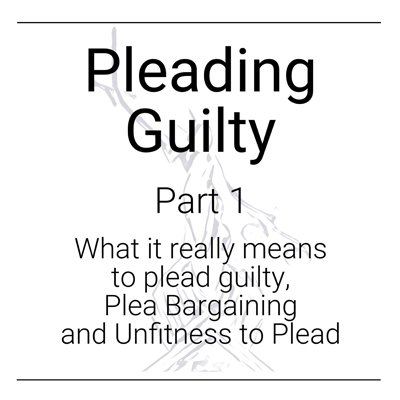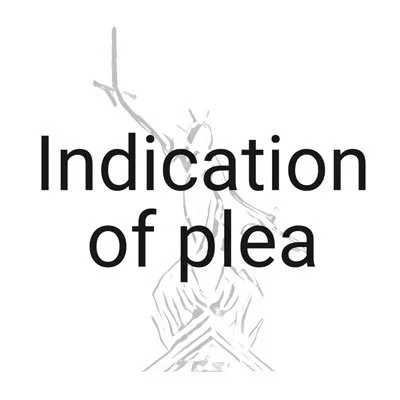Pleading Guilty - Part 1
Pleading Guilty, Plea Bargaining and Unfitness to Plead
All contents > Part 1 Pleading Guilty > Part 2 Credit for a guilty plea > Part 3 Basis of Plea > Part 4 Changing Plea
“On this and the following pages you can find out all you need to know about pleading guilty, from achieving a reduction in sentence and an advance sentence indication, to plea bargaining, changing your plea and appealing after a guilty plea.”
On this page:
Everything you need to know about pleading guilty
What does it mean to plead guilty?
What is an indication of plea?
How do I plead guilty?
When should I plead guilty?
Will I be sentenced after my guilty plea?
What is plea bargaining?
What happens if I tell my lawyer I am guilty?
What is unfitness to plead?
Everything you need to know about pleading guilty
On this and the following pages you can find out all you need to know about pleading guilty, from achieving a reduction in sentence and an advance sentence indication, to plea bargaining, changing your plea and appealing after a guilty plea.
There are 4 parts to the Guilty Plea pages:
Part 1 Pleading Guilty, Plea Bargaining and Unfitness to Plead (this page);
Part 2 Reduction in Sentence (Credit) for a Guilty Plea and for Assisting the Prosecution;
Part 3 Basis of Plea, Fact-finding Newton Hearings and Advance Sentence Indications;
Part 4 Changing Plea and Appeals following a Guilty Plea.
What does it mean to plead guilty?
You can only be convicted of an offence in one of two ways: first, by pleading guilty; or second, by being found guilty following a trial.
Pleading guilty to an offence means that you accept you have committed that offence. Once you plead guilty you are convicted of the offence. For this reason, following a guilty plea there is no need for a trial and the court will proceed to sentence, either immediately or at a later hearing.
You should not plead guilty unless you know precisely what it is you are pleading guilty to. Some offences are technical in nature and it is important to receive legal advice before making that decision. Similarly, you may think you are guilty, when actually you have a defence available to the charge, such as self-defence.
If you do not accept that you are guilty of the offence, then you should plead Not Guilty. This means that your case will then go to trial where the prosecution will seek to prove that you are guilty.
Go to the sections on magistrates’ court trial and Crown Court trial to know exactly what to expect during the trial process.
To find out whether your trial will take place in the magistrates’ or Crown Court, see Which court will I go to? >>
Sometimes you may accept that you are guilty of an offence, but not accept the facts of the offence as put forward by the prosecution. When this happens you can plead guilty on a particular factual basis.


















